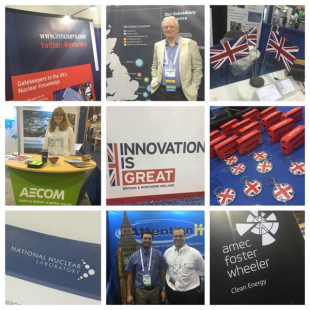
The last time that I attended this Waste Management International Conference was in 2006. Then, the Nuclear Decommissioning Authority was barely one year old. Ten years later, it is my honour and pleasure to be here in Phoenix, Arizona, speaking in the opening plenary on the occasion of the UK being the featured country. I would like to thank Waste Management Symposia (WMS) for inviting me.
Now is an exciting time for nuclear in the UK with the advent of a new phase of new build. This means that it is even more important that we can demonstrate progress with our mission to allow this to happen.
Progress in the UK
Over the past 10 years, there has been much progress across NDA’s UK estate (17 sites across England, Wales and Scotland):
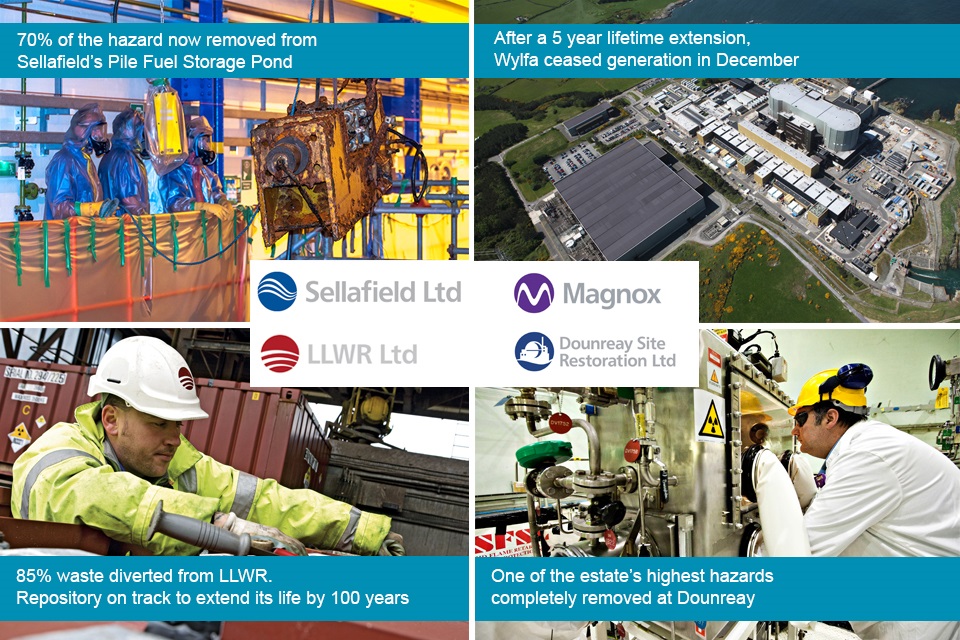
- highly active, mobile wastes are being retrieved from our high-hazard facilities at Sellafield for the first time ever
- a ground-breaking alternative 3-step solution which stores the waste ‘raw’ has been developed and which will speed up the decommissioning of the silo by several years and provide huge savings to the taxpayer
- our low-level waste is being managed in such a way that our only national facility will continue to provide its services for many decades to come: see Low Level Waste Repository videos
- progress towards Dounreay site’s interim end state by 2030 is going well
- our geological disposal programme has had its setbacks, but we are confident a new approach will lead to the selection of a suitable and publically acceptable site
- the plutonium stockpile is being safely and securely consolidated
- the last Magnox power station has come to the end of a successful life and entered into decommissioning
Who NDA works with to make this happen
Of course, the NDA has not done this alone. It is due to the hard work of our Site Licence Companies (SLCs), their Parent Body Organisations, our subsidiaries and our vibrant supply chain.
Much of the current progress we have made on high hazard facilities can only happen with the co-operation of our nuclear and environmental regulators, and government. We have adopted a more collaborative way of working which, in effect, has meant taking joint ownership of problems rather than the more conventional and somewhat confrontational approach between us and the regulator. This approach has been applied with great effect in the high hazard areas where we have seen the benefits of risk reduction.
Where NDA fits
We have a 120-year mission. To help us achieve this, we have partnerships, agreements and contracts with many other organisations within the UK and overseas. Over the past 10 years we have:
- put the right strategy and plans in place
- secured the funds necessary
- put in place the right arrangements
- driven performance and progress
Our role is strategic, we:
- establish the overall approach
- allocate budgets
- set targets
- monitor progress
NDA is, what is called, a Non-Departmental Public Body (created through the Energy Act 2004) and responsible and accountable directly to government through the Department of Energy and Climate Change (DECC). For some aspects of our work in Scotland, we are responsible to Scottish ministers.
We employ just over 200 staff. Our headquarters are based in west Cumbria, UK.
On-site activities are carried out by a workforce of approximately 18,000 who are employed by private-sector SLCs. In turn, the SLCs contract out specific projects to the supply chain.
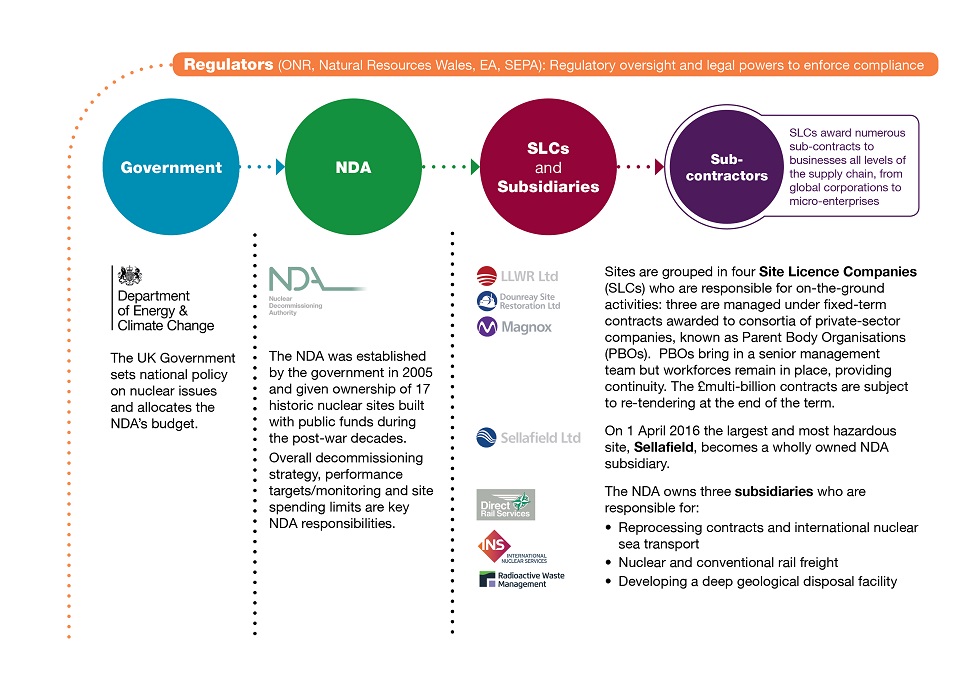
Budget for decommissioning
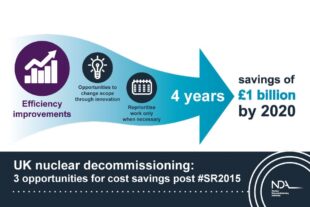
In terms of money, we get about two-thirds of our £3.3bn annual budget directly from the public purse. The other third comes from income from our reprocessing contracts. These contracts will come to an end in a couple of years’ time when current reprocessing ceases.
We went through a UK spending review in 2015 and I’m pleased to say that government recognised the vital importance of our mission in dealing with the nuclear legacy. Our settlement is for £11 billion but includes the challenge of making savings of £1bn over the next 4 years. I know this is a different process to the annual budget submissions in the US, but it gives us stability and comfort with the ability to plan.
Importance of international collaboration
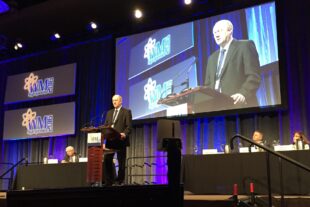
It’s great to see so many people from around the world gathered here at WM2016. All of us want to understand more about new and different solutions for the safe management and disposition of radioactive waste and materials.
I am looking forward to hearing about the progress being made in the US and other countries to see if we can pick up even more lessons learned from around the globe.
There are various UK sessions this week to share how we are making progress and hear about the challenges that remain. In particular, I welcome any queries from attendees at the UK panel sessions where we will take questions on:
- UK nuclear policy
- decommissioning
- waste management
- contracting
Waste Management International Conference (WM2016)
WM Symposia (WMS) presents the annual waste management conference. It is a non-profit organisation dedicated to education and opportunity in waste management. It was founded to provide a forum for discussing and seeking cost-effective and environmentally responsible solutions to the safe management and disposition of radioactive waste and radioactive materials.
Join the WM Symposia LinkedIn Group
4 comments
Comment by Sandra Ellis posted on
Very interesting blog post, the NDA has come a very long way in the past ten years,it has set the Foot print for the future of decommissioning which as stated is a hundred and twenty year project. We need to make sure that the next generation know how to deal with the Nuclear Waste legacy we have left, and how to deal with any further Nuclear waste from new builds. The world must work together and share information. This is why these symposiums are so important.
Comment by Bill Hamilton posted on
Thank you for your continued support Sandra. We appreciate your views and input.
Comment by Larry Kew posted on
Waste management will be one of the most important industries in the future. Whether it is a big factory with a lot of waste or a home looking for a refuse collection options locally, keeping the world clean will be extremely important. I live in London, TW9 and we all know how densely populated it is in here, so using professional, locally-based waste disposal companies such as Mr. rubbish removal kew is one thing anyone can do to save money, time and more importantly, recycle as much trasha s possible
Comment by Bill Hamilton posted on
Thank you for your comment Larry.